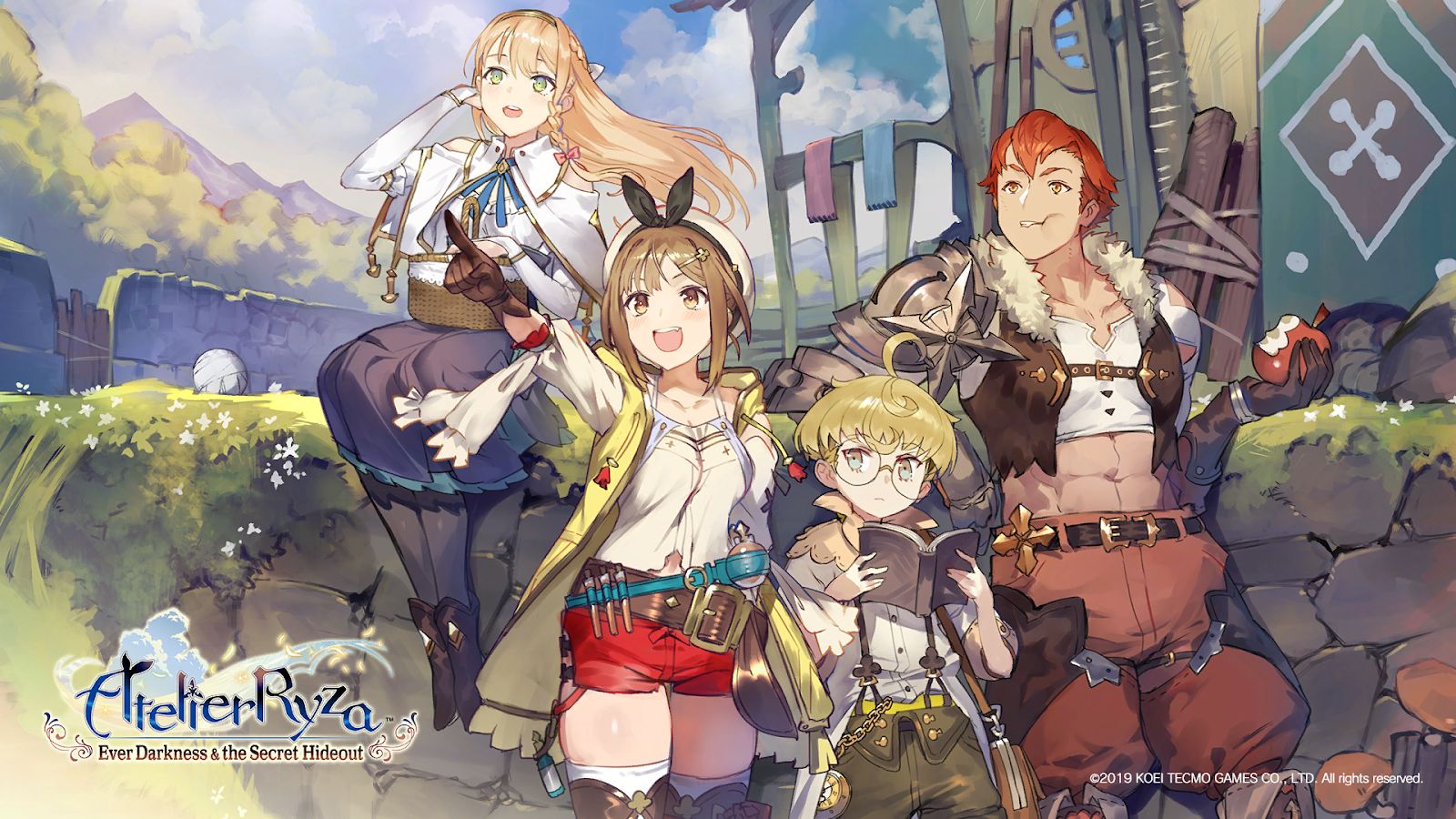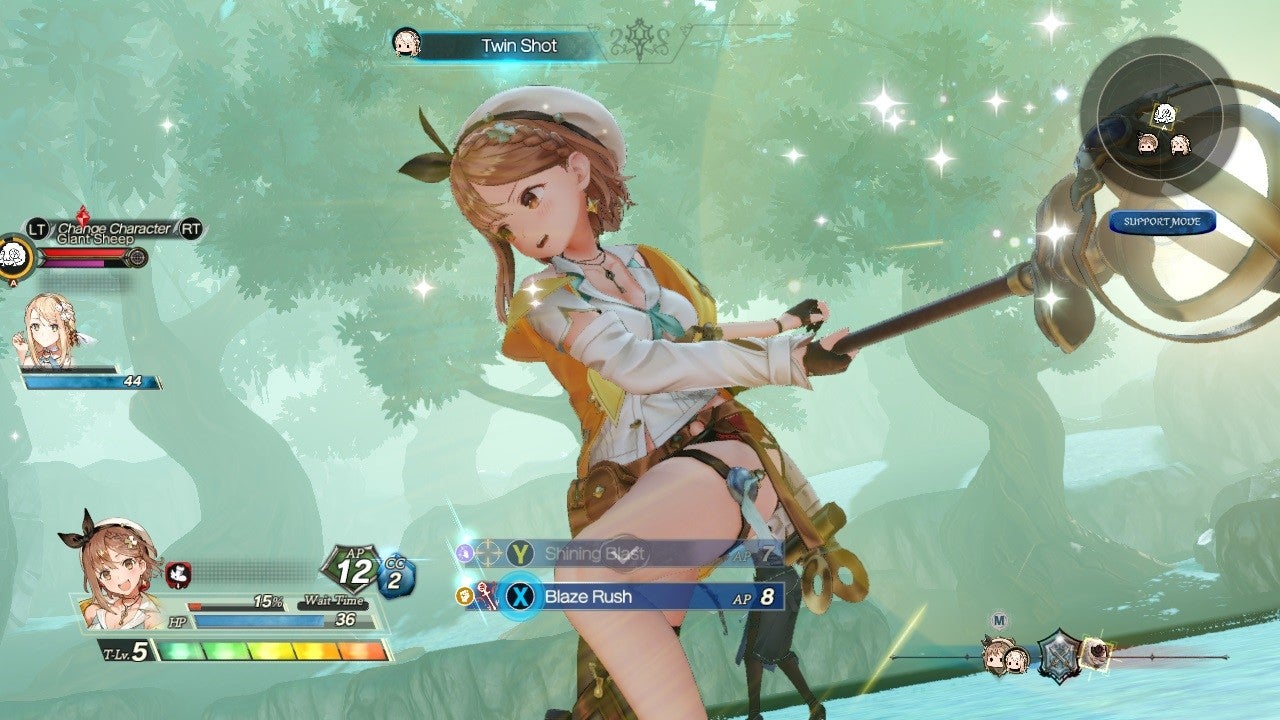But that’s pretty much what’s happened. When it arrived in Japan in 2018, it quickly sold more than 150,000 units, generating buzz among fans both at home and abroad. It soon followed suit in North America, where it leapt up the sales charts on Steam among endless “Thicc Thighs Save Lives” memes. True, it was a fairly modest success in the grand scheme of things — selling a few hundred thousand units won’t make your game the next Among Us — but it was enough to turn some heads, including my own. Now Atelier Ryza 2 is here, and it’s already popping up on Steam’s list of bestsellers. It has a long way to go before it matches the popularity of Persona 4 Golden, let alone Genshin Impact, but at long last Atelier appears to be a series on the rise. So how did Atelier Ryza get to this point? Well, Gust deserve no small amount of credit for the large improvements made to the Atelier formula. But it has also been the beneficiary of various trends that have taken shape over the past decade or so. Specifically, Japanese RPGs have developed a real audience on PC, and Atelier Ryza is particularly well-positioned to thrive in such an environment. For evidence of how Japanese games have found a comfortable home on Steam, you need look no further than Dragon Quest XI, which saw a worldwide release on PC alongside the PlayStation 4 version in 2018 — something that would have been completely unheard of just a few years earlier (indeed, Dragon Quest VIII still hasn’t made it to PC). As Japanese publishers have adopted an international outlook, their attention has necessarily fallen on platforms like Steam, home to a large — and up until recently, untapped — audience of enthusiasts. This has in turn enhanced their visibility, giving rise to thriving mod communities like the ones enjoyed by the western peers. Seriously, have you seen the mods for Final Fantasy IX? They’re really, really good. Still, even by the standards of Japanese RPGs, the Atelier games are niche, comparing more readily with the racy Akiba’s Trip than genre stalwarts like Final Fantasy. The series has been around a surprisingly long time, with roots going back to the late 90s, when Atelier Marie first debuted on the PlayStation, later to be ported to the Sega Saturn and PC. Atelier Marie established the formula that would carry the series for the next 20 years: a charming cast, a deep crafting system, and low-stakes adventuring. Gust would go on cranking out Atelier games for the next 20 years or so, happy to cultivate a tiny but dedicated fandom on platforms like the PlayStation Vita. When Atelier Ryza appeared on the scene in 2019, it retained this basic core, but substantially expanded its scope. Its graphics were noticeably better than those of its predecessors, featuring a bright colour palette reminiscent of Nintendo’s The Legend Of Zelda: Breath Of The Wild, and more recently, Genshin Impact. Its systems were also upgraded, with a revamped crafting system resembling something like a skill tree, and a much faster combat system. Even the key art looked better. Just compare it to Atelier Lulua, which looks like it’s advertising a mobile game by comparison. And - sighs - yes, the memes had an impact as well. When Dengeki PlayStation revealed that character designer Toridamono was fixated on getting Ryza’s thighs right, the internet quickly responded. The result: an all-time peak of around 4,000 concurrent users according to Steam Charts. For comparison, its immediate predecessor, Atelier Lulua, peaked at about 511 concurrent users. Not too shabby. Reflecting on the series’ newfound success in the west in an interview with Nintendo Life, producer Junzo Hosoi mostly attributed Ryza’s breakout to the faster-paced battle system, which is a hybrid of turn-based strategy and real-time inputs. He’s not wrong. Like the rest of Atelier Ryza, the battle system is both more streamlined and more attractive, instantly grabbing the eye with a sense of style that was decidedly absent in previous games. The sequel goes still further by introducing chain attacks, resulting in the battle system being even flashier for the second go-around. But beyond even these meaningful improvements, Atelier has benefited from certain trends beyond the scope of the series itself. Among them, parent company Koei Tecmo has taken a noticeable step forward in quality, finding success with a range of titles, including the Atelier series and Nioh, Team Ninja’s answer to Dark Souls. Atelier Ryza has also surely benefited from the continued mainstreaming of anime, which has helped even fairly esoteric action games like Nier: Automata to find mass audiences. Then there are the technological advantages of the PC itself, which are evident in Atelier Ryza being able to run at 4K 60FPS while the Switch and PS4 versions are locked to lower framerates. As a result, Atelier Ryza looks and feels much better on PC, putting it in line with other recent releases like Monster Hunter: World. It’s aided by Koei Tecmo getting progressively more comfortable with developing for PC, resulting in better and more polished ports than the sometimes ramshackle efforts of the past (though Atelier Ryza still had its share of tearing issues and other visual glitches at launch). All of this feels remarkable in light of the fact that Steam wasn’t even readily available in Japan as recently as 2011, when the platform and the bulk of its games were still presented in English. Even just a few years ago, magazines like Weekly Famitsu were reluctant to cover digital games, preferring instead to focus on traditional console releases. It’s taken a dramatic shift in mindset among Japanese publishers to get to this point. Even now, Japanese publishers seem kind of shocked when one of their games manages to break out on PC. So while Atelier Ryza is hardly the first Japanese RPG to succeed on Steam, it does represent an ongoing sea change for the genre. In the early 2000s, popular developers like BioWare began migrating to consoles, leading to speculation that the PC was doomed as a gaming platform. Now JRPGs are moving the other direction. You could almost say that the genre has come full circle, closing the loop that began when Yuji Horii borrowed from Ultima and Wizardry to create Dragon Quest. That can only mean good things for Atelier Ryza and games like it, showing that confident, well-made JRPGs can have a bright future on PC, no matter how niche their history.


